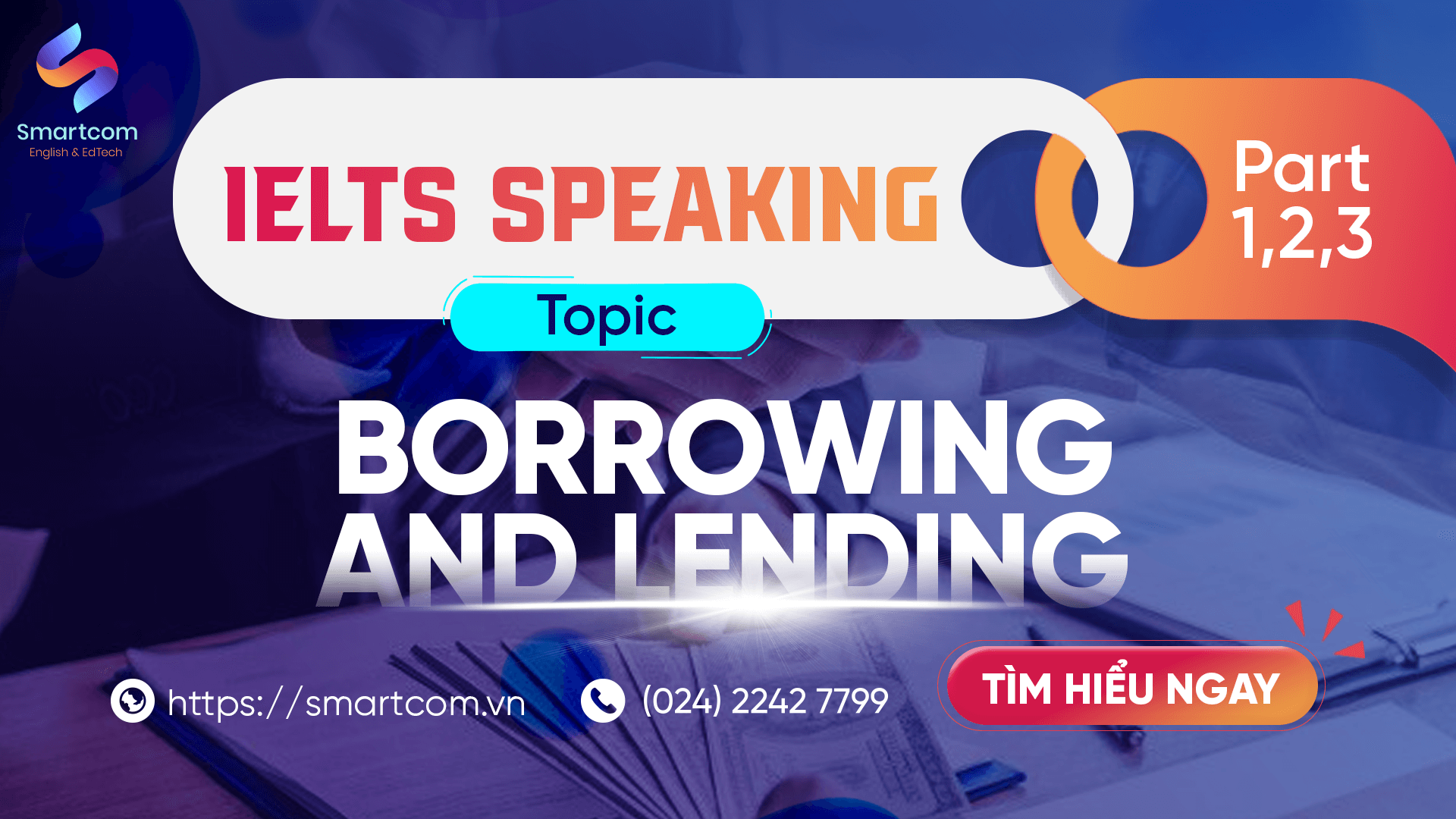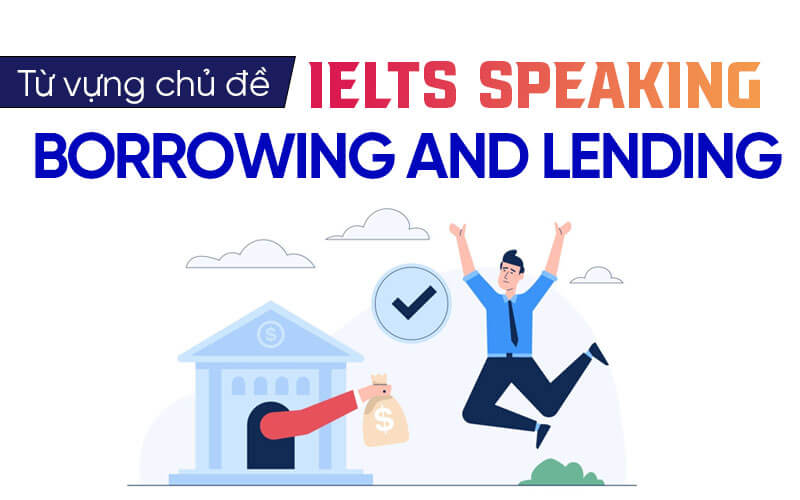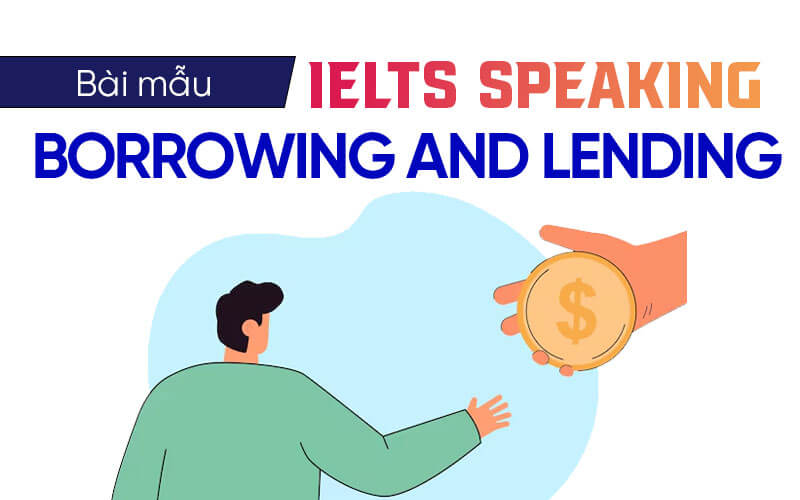Đội ngũ chuyên gia tại Smartcom English là tập hợp những chuyên gia đầu ngành trong lĩnh vực IELTS nói riêng và tiếng Anh nói chung. Với phương pháp giảng dạy sáng tạo, kết hợp với công nghệ AI, chúng tôi mang đến những trải nghiệm học tập độc đáo và hiệu quả. Mục tiêu lớn nhất của Smartcom Team là xây dựng một thế hệ trẻ tự tin, làm chủ ngôn ngữ và sẵn sàng vươn ra thế giới.
Nói về mũ, nón thì hẳn đây là chủ đề ta thường hay bắt gặp trong IELTS Speaking. Mũ nón ngoài việc che nắng che mưa thì còn mang ý nghĩa cho đặc trưng cho văn hóa như nón lá Việt Nam vậy.
Cũng có những bạn vô cùng yêu thích nón lá, muốn đưa nón lá ra thế giới nhưng lại chẳng biết làm sao để giao tiếp cho chuẩn xác. Đấy thật sự là một điều khá nuối tiếc.
Qua đây, Smartcom sẽ đồng hành cùng các bạn trong việc truyền tải hình ảnh mũ nón nói chung và nón lá Việt Nam nói riêng qua bài viết về chủ đề IELTS speaking borrowing and lending dưới đây nhé!

Từ vựng chủ đề IELTS Borrowing and Lending
- Borrow (v): mượn – Borrow from (sb)
- Lend (v): cho mượn – Lend (sth) to (sb)
- Loan (n/v): khoản vay / cho vay
- Repay (v): trả lại (tiền, đồ mượn)
- Owe (v): nợ
- Return (v): trả lại
- Take out a loan (phrase): vay tiền
- Pay off a debt (phrase): trả hết nợ
- Financial difficulties (n): khó khăn tài chính
- Bank loan (n): khoản vay ngân hàng
- Interest rate (n): lãi suất
- Generous (adj): hào phóng
- Reluctant (adj): miễn cưỡng
- Trust (n/v): sự tin tưởng / tin tưởng
- Risky (adj): rủi ro
- Reliable (adj): đáng tin cậy
- Irresponsible (adj): vô trách nhiệm
- Take advantage of (phrase): lợi dụng
- Friendship at stake (phrase): tình bạn gặp rủi ro
- Financial burden (n): gánh nặng tài chính
- Obligation (n): nghĩa vụ
- Debt collector (n): người thu hồi nợ
- Bankruptcy (n): phá sản
- Run out of money (phrase): hết tiền
- Save up for (sth) (v): tiết kiệm tiền cho mục đích gì đó
- Get into debt (phrase): mắc nợ
- Give back (v): trả lại đồ đã mượn
- Take back (v): lấy lại đồ đã cho mượn

Bài mẫu IELTS Speaking Part 1 chủ đề Caps
Câu hỏi: Do you like borrowing things from others?
I don’t really like borrowing things unless it’s absolutely necessary. I prefer to have my own stuff, but in some cases, borrowing is a convenient solution, especially for things I don’t use often, like books or tools.
Câu hỏi: Have you ever borrowed money from someone?
Yes, I once borrowed money from a close friend when I had an unexpected expense. It was around a month ago. Now I have paid my debt completely and thinking about the time, I tried my best to repay as quickly as possible because I don’t want money to affect friendships.
Câu hỏi: Do you usually lend things to others?
It depends on what they ask for. I don’t mind lending books or small things, but when it comes to money or valuable items, I think twice before saying yes. Like last time when one of my friends was asking for a large amount of money, I turned him down as it was suspicious.
Câu hỏi: How do you feel when someone doesn’t return what they borrowed from you?
It’s quite frustrating, especially if it’s something valuable. If someone doesn’t return my stuff, the first thing that comes to my mind is irresponsibility of that person and I will hesitate to lend them anything in the future.
Câu hỏi: Have you ever borrowed a book from someone?
Yes, I have. I remember borrowing a novel from my friend because I was really interested in it but didn’t want to buy it at the time. It was a great read, and I made sure to return it in perfect condition and in time for him to read as well.

Bài mẫu IELTS Speaking Part 2 chủ đề Borrowing and Lending
Đề bài: Describe a time when you borrowed something from someone
You should say:
- What you borrowed
- Who you borrowed it from
- Why you borrowed it
- And explain how you felt about it
A few months ago, I had to borrow a laptop from my cousin because mine suddenly stopped working. It was an unexpected situation, and I needed a laptop urgently for an important online meeting. At first, I considered going to a café and using a public computer, but since I needed privacy and a stable internet connection, borrowing one seemed like the best option.
Luckily, my cousin had a spare laptop that he wasn’t using at the time. He was kind enough to lend it to me for a few days without hesitation. I remember feeling quite relieved because replacing or repairing my laptop would have taken a long time, and I couldn’t afford to miss my meeting. While using his laptop, I was extra careful not to damage it in any way. I even cleaned it before returning it as a small gesture of appreciation.
This experience made me realize how important it is to have supportive people around. It also taught me to be prepared for unexpected situations by having backup plans. Since then, I’ve started saving up for a new laptop to avoid similar problems in the future. Overall, borrowing something when needed can be a lifesaver, but it’s equally important to respect and take care of what we borrow.
Bài mẫu IELTS Speaking Part 3 chủ đề Borrowing and Lending
Câu hỏi: Why do people borrow things instead of buying them?
People often borrow things instead of buying them because it’s more economical, especially for items they only need temporarily. For example, borrowing a book instead of purchasing it makes sense if someone doesn’t plan to reread it. Additionally, some people may not have the financial means to buy certain items, so borrowing becomes a practical solution.
Câu hỏi: Do you think borrowing money from friends is a good idea?
I think borrowing money from friends can be risky. On one hand, it’s convenient because friends might not charge interest like banks do. However, if the borrower fails to pay back on time, it could harm the friendship. That’s why I believe it’s important to set clear expectations and borrow only when absolutely necessary.
Câu hỏi: Why do some people not like lending things to others?
Some people are hesitant to lend things because they’ve had bad experiences in the past. For example, if someone borrowed something and returned it damaged or never gave it back, the lender might become more cautious in the future. Additionally, some items have sentimental or financial value, making people less willing to risk losing them.
Câu hỏi: Do you think technology has changed the way people borrow and lend things?
Definitely! With technology, borrowing and lending have become much easier. Nowadays, people can rent almost anything through apps, from cars to clothes. There are also online platforms where people can lend and borrow money safely, reducing the risks involved. Technology has made the process more convenient and efficient.
Tổng Kết
Trên đây là bộ từ vựng cũng như câu hỏi sẽ xuất hiện trong IELTS Speaking borrowing and lending! Mong rằng bài viết sẽ hữu ích cho các bạn trong quá trình các bạn giao tiếp cũng như chinh phục kỳ thi IELTS nhé!
Ngoài ra các chủ đề khác cũng sẽ được cập nhật thường xuyên, nhằm giúp các bạn tự tin chuẩn bị đối mặt với những câu hỏi và đề thi khác nhau trong IELTS.
Các bạn hãy cố gắng theo dõi liên tục để nhận về những bộ câu hỏi và từ vựng mới nhất để tối ưu được việc học của bản thân nhé. Hẹn gặp các bạn tại những bài viết tiếp theo!
Kết nối với mình qua
Bài viết khác


![[PDF + Audio] Tải Sách IELTS Cambridge 19 (Kèm đáp án)](https://smartcom.vn/blog/wp-content/uploads/2024/06/ielts-cambridge-19_optimized.png)


![[PDF + Audio] Tải Sách IELTS Cambridge 17 (Kèm đáp án)](https://smartcom.vn/blog/wp-content/uploads/2024/07/sach-ielts-cambridge-17_optimized.jpg)

![[PDF + Audio] Tải Sách IELTS Cambridge 15 (Kèm đáp án)](https://smartcom.vn/blog/wp-content/uploads/2024/07/ielts-cambridge-15_optimized.jpg)








